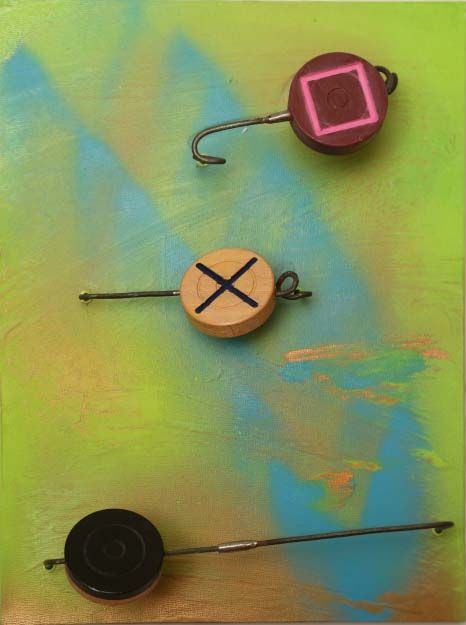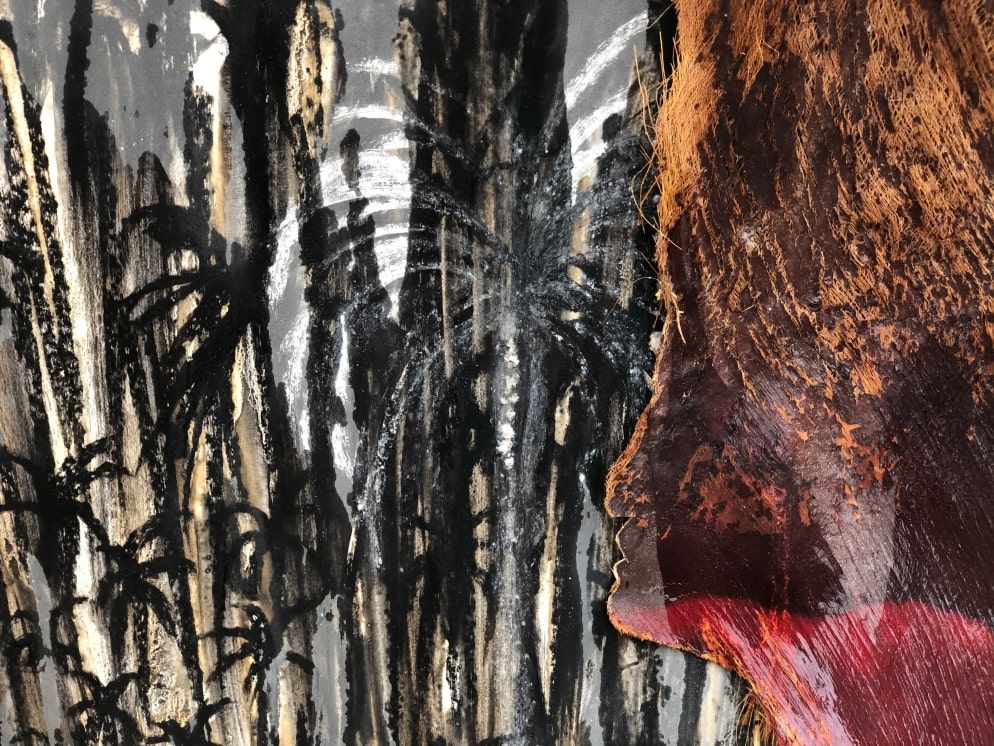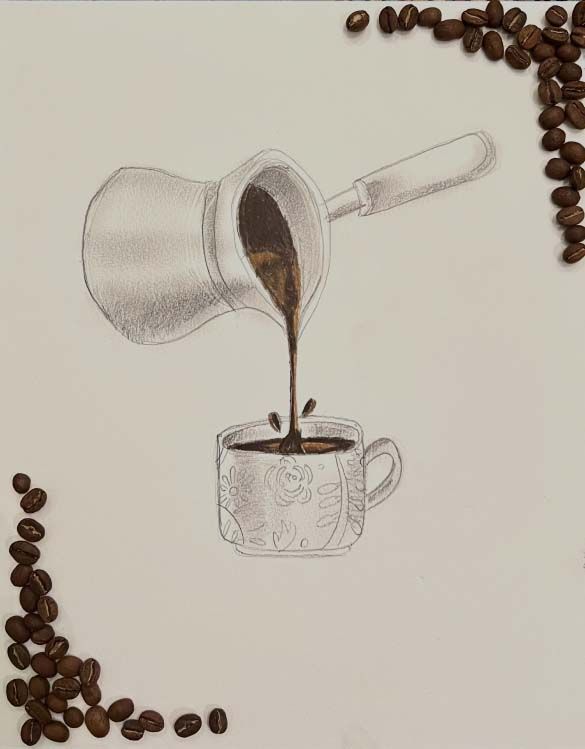Values & Rules of the Social Sustainability Game
‘The Carrom series,’ by Sheikha Alyazia bint Nahyan Al-Nahyan. “The painted backdrop of the enlarged disks has faint arrows to express the importance of interactive practices,” she said.
The funny thing about ancient findings is that the more recognizable they are to us in our modern age, the more we find them astonishing. A few months ago, the oldest limestone incense burner was uncovered in Oman. Social habits stay put and are far reaching. In mythology even deities echoed this human habit; Pythia the priestess of Apollo would be taken into a trance by the fumes, while in Egypt the immortal Hathor was more accustomed to myrrh, the special resin which was for afternoons only.
As early as three thousand BCE, Magan (the lands of Oman & United Arab Emirates according to the Sumerians) produced the first burners for incense. The round shape of the burner is a typical household essential in most Arab homes. Moreso in this pandemic where, just as we joked about it in memes, smoke permeated throughout every house in the region. Many families (mine included) overly burnt oud, frankincense and any other influenza “repellents” we had available.
Arab scholar (and student of the University of al-Qarawiyyin) Ahmed Al-Maqqari told us about Friday traditions in the Grand Mosque of Córdoba, and how half a kilogram of rich oud was set to burn the night before Friday, then spreading its essence weekly on the holy evening.
Friday prayer is widely recognized as a constant communal practice, where the formal and non-formal sectors come together once a week.
Each society possesses elements and skills to ensure the continuity of organized systems. Culture and tradition enhance cross-generational and sectoral communication. A Greek proverb puts through the idea simply: “Traditions are a second habit.”

‘The Carrom series,’ by Sheikha Alyazia bint Nahyan Al-Nahyan.
Just as ancestral items are passed down with care, showcased in museums or in households,it would do good if our values are actively conveyed between one another and attended to with the same concern and importance.
We know very well of rivalries that span many lifetimes by being reintroduced every era. The same way, moral attitudes instilled in generation after generation can promote long term stability. The quote “living in the now” may as well be extended to include “for the future.”
In Morocco, from Rabat all the way to Casablanca, a 300-year-old tradition is organized for the sake of unity.
The Arab and Amazigh tribes celebrate rituals and traditions to sustain the harmony in their Tawayeet Festival.
The festival is a five-day gathering of horsemanship and cultural ceremonies that is organized in remembrance of a peace agreement between the tribal sheikhs in the past. The guest family approaches the hosting tribe in verse and poem.
A group known as Abaidat Al Rama perform motivational folklore for the crowds during thedays of the festival. Music and art play a major role in sustaining values and relations.

‘The Carrom series,’ by Sheikha Alyazia bint Nahyan Al-Nahyan.
The word “value” is defined as being fully beneficial and expressing a valuable function. Equivalent to unity, Arabs value the tradition of being earnest or modest. Communities benefit from it in lots of ways.
Omar Ibn Al-Khattab encouraged his son to always behave modestly, except in relation to education and knowledge.
Sheikha Sabha bint Mohammed shared so many stories with us about Bedouin life. When they used to move every three months and uprooted their tents and belongings, members of the tribe were serious about tidying their area of settlement before vacating to another place, weary of arousing any fault to their reputation. This very notion upheld by them benefited the people and nature equally.
Ibn Miskawayh, the 10th century Neoplatonist philosopher, viewed modesty as a praised reaction to negative matters or issues. Times have changed, but will older virtues transpose by these changes Traditions which are purely behavioral deal with human nature. Neither old nor new, they are just part of our nature because conscious behaviors refine our actions in a community.

‘The Carrom series,’ by Sheikha Alyazia bint Nahyan Al-Nahyan.
Assuming we all plan to be permanent members of society, it will consist of positive social activities in our daily life. Other than communal prayer and family gatherings and entertainment; games also succeed in engaging the public.
This year another familiar artifact was unearthed by the Polish Centre of Mediterranean Archaeology in the Qumayrah Valley in Oman. The find is a four-thousand-year-old stone board game with grids and holes, probably played by using small stones.
Plenty types of multiplayer games have been around as early as civilizations have existed. The carrom board found throughout Asia engages people of all ages. A basic activity of striking wooden disks on a wooden board, this game represents a lifetime of memories spent with friends, family, and neighbors ages 9 to 99.
The painted backdrop of the enlarged disks has faint arrows to express the importance of interactive practices. Some forms of interaction outwardly seem unnecessary though subtly achieve needed stability. The topic of social sustainability is sustaining the necessities without bypassing the unnecessary.
Things of active culture and art wear diverse colors and bear authentic values. In being socially sustainable, linking people with their values by using games and tradition, we will ensure the furtherance of a better future in all aspects of life in a habitual and playful way.

‘The Carrom series,’ by Sheikha Alyazia bint Nahyan Al-Nahyan.


